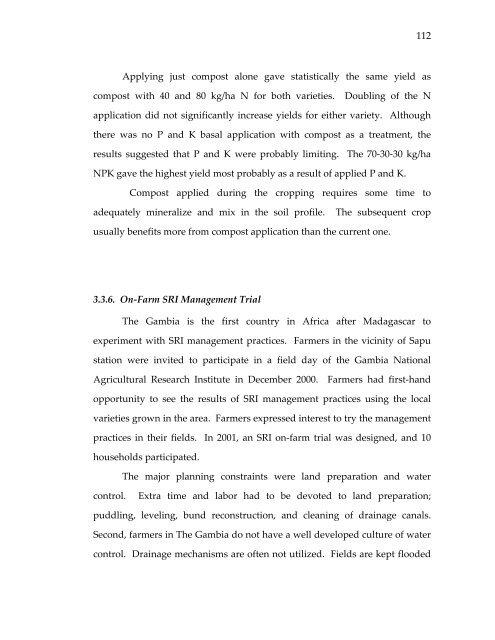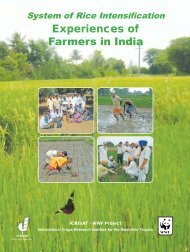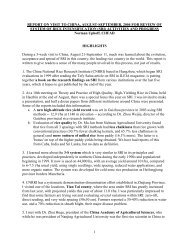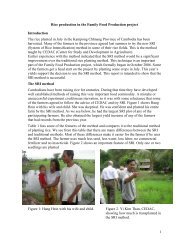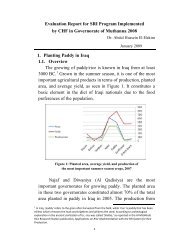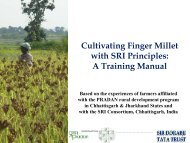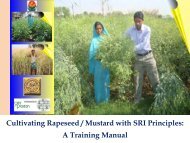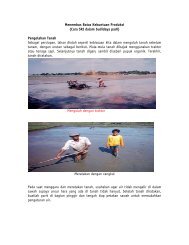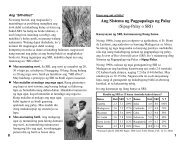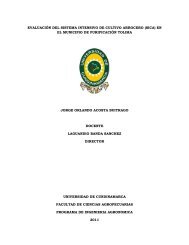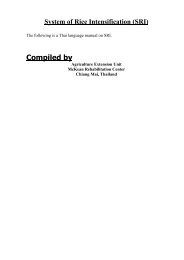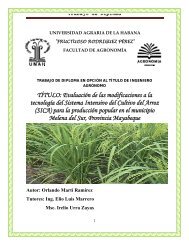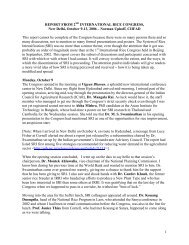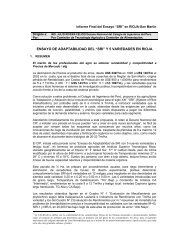Management of rice production systems to increase productivity
Management of rice production systems to increase productivity
Management of rice production systems to increase productivity
You also want an ePaper? Increase the reach of your titles
YUMPU automatically turns print PDFs into web optimized ePapers that Google loves.
112<br />
Applying just compost alone gave statistically the same yield as<br />
compost with 40 and 80 kg/ha N for both varieties. Doubling <strong>of</strong> the N<br />
application did not significantly <strong>increase</strong> yields for either variety. Although<br />
there was no P and K basal application with compost as a treatment, the<br />
results suggested that P and K were probably limiting. The 70‐30‐30 kg/ha<br />
NPK gave the highest yield most probably as a result <strong>of</strong> applied P and K.<br />
Compost applied during the cropping requires some time <strong>to</strong><br />
adequately mineralize and mix in the soil pr<strong>of</strong>ile. The subsequent crop<br />
usually benefits more from compost application than the current one.<br />
3.3.6. On‐Farm SRI <strong>Management</strong> Trial<br />
The Gambia is the first country in Africa after Madagascar <strong>to</strong><br />
experiment with SRI management practices. Farmers in the vicinity <strong>of</strong> Sapu<br />
station were invited <strong>to</strong> participate in a field day <strong>of</strong> the Gambia National<br />
Agricultural Research Institute in December 2000. Farmers had first‐hand<br />
opportunity <strong>to</strong> see the results <strong>of</strong> SRI management practices using the local<br />
varieties grown in the area. Farmers expressed interest <strong>to</strong> try the management<br />
practices in their fields. In 2001, an SRI on‐farm trial was designed, and 10<br />
households participated.<br />
The major planning constraints were land preparation and water<br />
control. Extra time and labor had <strong>to</strong> be devoted <strong>to</strong> land preparation;<br />
puddling, leveling, bund reconstruction, and cleaning <strong>of</strong> drainage canals.<br />
Second, farmers in The Gambia do not have a well developed culture <strong>of</strong> water<br />
control. Drainage mechanisms are <strong>of</strong>ten not utilized. Fields are kept flooded


